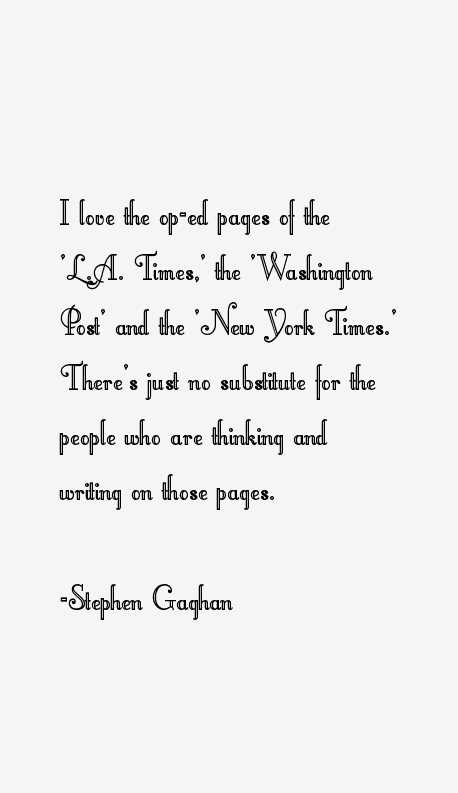Stephen Gaghan Quotes & Sayings (Page 2)
Stephen Gaghan quotes and sayings page 2 (60 year old director). These are the last 8 out of 18 quotes we have for him.
“It's rare in Hollywood to get the chance to work on something that you actually care about. The tragedy of the place is all these talented people trying to get excited about stuff they themselves would only view at gunpoint.”
“It's tricky to ask a filmmaker to explain his own work; usually we're the least qualified to make sense of what we've done, unfortunately, because of the tunnel vision required to create anything over four years.”
“The movie business has been in enormous flux. It's always changing, and you've got to scramble. The Internet came along and devoured the DVD backend of the movie business. Suddenly you're watching dollars turn into nickels, and that's interesting to me.”
“When I was seven and told my mom, 'I'm gonna be a writer,' she said, 'Oh, that's a terrible idea. You'll live in misery and die teaching other people's children badly.' My parents wanted the safer path for me, and I think they failed miserably achieving that.”
“I can't separate the process of writing from the visual process. I'm speaking only for myself here, but I'm a highly visual writer. In my imagination, when I'm thinking of a scene, I think of every last detail of it: The space, the color palette, the blocking of the actors, the placement of the camera.”
“I know Charlie Kaufman really well, for instance. Charlie Kaufman starts a story, and he has no freaking idea where he's going. None. Zero. And he doesn't want to know, because there's a little bit of death in that.”

“I love the op-ed pages of the 'L.A. Times,' the 'Washington Post' and the 'New York Times.' There's just no substitute for the people who are thinking and writing on those pages.”

“I remember, when I was writing 'Traffic,' talking to top federal drug-enforcement officials and having them say they read it and found it very good and believable, except the scene where the girl describes her resume.”
Stephen Gaghan Quotes Rating
No Ratings Yet
Leave A Comment
























